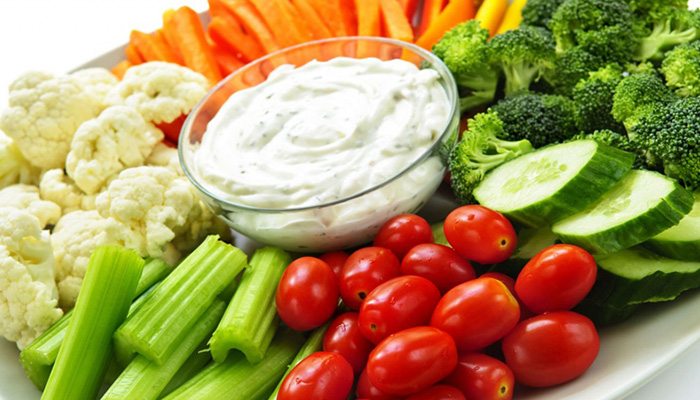Low-fat diet tied to improved breast cancer survival odds
Breast cancer patients may have a better chance of survival with a diet comprising of fruits, vegetables, and whole grains
June 09, 2018

Breast cancer patients may have a better chance of survival when they follow a low-fat diet heavy in fruits, vegetables and whole grains, a US study suggests.
Researchers studied 19,541 participants in the federally funded Women’s Health Initiative (WHI) who were randomly selected to join a dietary experiment focused on limiting fat intake to 20 percent of calories. Researchers also looked at data for a control group of 29,294 women in the WHI study who didn’t alter their diets.
By the time the researchers had been tracking half the women for at least 8.5 years, 1,764 participants had been diagnosed with breast cancer.
A decade after their diagnosis, 82 percent of the breast cancer patients on the low-fat diet were still alive, compared with 78 percent in the control group.
For women on the low-fat diet who developed breast cancer, this translated into a 22 percent lower risk of death during the study, and these women typically didn’t succeed at reducing fat consumption by the amount suggested in the diet experiment.
“Decades ago, comparison of country-to-country differences in fat intake found countries with higher fat intake like the US and most of Western Europe had higher breast cancer mortality, but subsequent observational studies have had inconsistent results,” said lead study author Dr Rowan Chlebowski of City of Hope National Medical Center in Duarte, California.
The WHI dietary modification trial is the only full-scale randomized trial addressing this issue,” Chlebowski said by email.
The main goal of the diet experiment was to get women to change their eating habits, not to count calories or lose weight.
Women assigned to change their diets had a series of group and individual counseling sessions with certified nutritionists over the first year of the program, followed by group sessions four times a year for the remainder of the experiment.
After one year, women in the diet group got about 24 percent of their calories from fat compared with 35 percent fat in other participants’ diets. While weight loss wasn’t a goal, women in the diet group weighted about 2.2 kilograms (4.9 pounds) less than other participants.
While the diet experiment was ongoing, 671 women in the diet group and 1,093 who didn’t alter their eating habits developed breast cancer. This difference was too small to rule out the possibility that it was due to chance.
But women on the low-fat diet were less likely to develop certain hard-to-treat tumors.
One limitation of the study is that researchers relied on women to accurately describe their eating habits in questionnaires, the researchers note in JAMA Oncology. Another drawback is that women in the diet group managed only minimal increases in their consumption of fruits, vegetables and whole grains.
Because women in the low-fat diet group did lose weight relative to other participants, it’s also possible that weight rather than the fat content of the diet might explain the differences in cancer survival odds, said Dr. Graham Colditz, a researcher at Washington University School of Medicine in St. Louis, Missouri, who wasn’t involved in the study.
“For lowering breast cancer risk - and cancer risk overall - the most important part of diet is to keep calories in check,” Colditz said by email. “Weight gain and obesity is an important risk factor for postmenopausal breast cancer - and 12 other cancers.”
Not all fat is created equal, either.
“There is no evidence that total fat intake affects the risk of breast cancer,” Colditz said. “There is growing evidence, however, suggesting that type of fat could be important, with diets rich in polyunsaturated and monounsaturated fats possibly lowering risk, and those higher in saturated and animal fats possibly increasing risk.”









